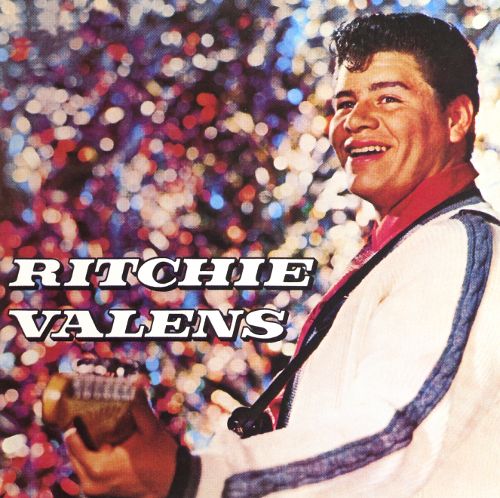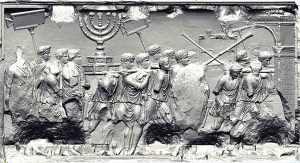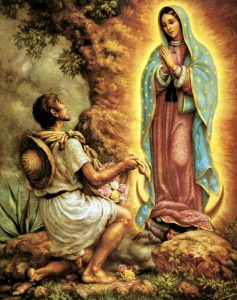It is the late 1950’s in southern California, and a young superstar named Ritchie Valens, whether he knows it or not, is about to change the culture of America forever. In a matter of eight months, the Hispanic student at San Fernando High School just became one of the biggest celebrity musicians of the day.1 After dropping out of school in order to record and tour full time, Richard Valenzuela was making phenomenal Rock N’ Roll music, both on stage and in the studio. While America quickly became obsessed with the undeniably talented teen, nothing could prepare them for his next release.
From the beginning, the odds were against young Richard. He was merely sixteen, and, as a young Latino, there were few opportunities for someone like him in the American mainstream music industry, let alone in Rock ’n Roll. He saw proof of this fact early in his career, facing prejudice and discrimination at every turn. He was even forced to change his name to Ritchie Valens in order to make it easier for his fans to pronounce—a compromise that gave way to controversy and anger from his family.2 Ritchie realized that, even though he was opposed to the changing of his name, it would be a smart move for him as a musician. But even after his family name was taken from him, he refused to let go of his heritage. In fact, it seemed that he tightened his grip.
Ritchie wanted to do something to pay tribute to his Latino culture. With the assistance of Bob Keane of Del-Fi Records, he decided he would combine the two worlds that he was now so heavily a part of, by turning the Spanish tune “La Bamba” into an upbeat rock song. Only knowing English, Ritchie had to learn the lyrics of the traditional Mexican folk song phonetically. After countless takes in the studio, he recorded the song on a two-track record with a second soon-to-be hit Oh, Donna.3
Ritchie released the track and promptly shook up America. Most people had no idea what the song was about, but, for one of the first times in modern music history, they didn’t care. The charismatic rhythm of the song combined with Ritchie’s unique voice; it was impossible to dislike it, and the song spread like wildfire, taking his career to new heights.
Seeing Ritchie perform was a spectacle only few Americans were graced with. His energy and impeccable guitar skills would engage the thousands of audience members from start to finish.4 While the crowd was swooning over every single song, there was nothing like that epic guitar riff that carries the tune of La Bamba.3 As soon as Ritchie’s guitar pick hit his strings, the fans simply could not contain themselves.

Unfortunately, Richard Valenzuela’s career was ended even quicker than it begun. Soon after his explosive rise to fame was sparked, and before he could finish his tour, Ritchie Valens was killed in a plane crash along with fellow artists Buddy Holly and The Big Bopper J.P. Richardson.6 The tragedy triggered nation-wide shock, and the day became known by many as “The Day The Music Died.”7
Although his life was ended much too early, perhaps it was this terrible fate that immortalized him in music history. His music and the rest of Valens’ amazing life inspired the film La Bamba, a timeless and classic film. Ritchie’s brave move in the release of “La bamba” inspired and enabled many other Hispanic artists to begin to make their way into the spotlight, making it much more than just a great song. We see the repercussions still today, through modern Latin Rock bands and all the sub-genres surrounding them, and will without a doubt continue to experience the fruits of the song for decades to come. Needless to say, American music and culture would not be the same without Richard Valenzuela’s audacious contributions.
- Encyclopedia of World Biography, 2004, s.v. “Ritchie Valens.” ↵
- Salem Press Biographical Encyclopedia, January 2017, s.v. “Ritchie Valens,” by Scot M. Guenter. ↵
- “‘La Bamba’ one of the 100 most important American musical works of the 20th century,” Broadcast Transcript. Weekend All Things Considered, NPR, July 15, 2000. ↵
- St. James Encyclopedia of Popular Culture, 2nd ed. “Valens, Ritchie (1941–1959),” Candida Taylor. ↵
- “‘La Bamba’ one of the 100 most important American musical works of the 20th century,” Broadcast Transcript. Weekend All Things Considered, NPR, July 15, 2000. ↵
- Robert Wright, “The Day The Music Died,” Aviation Safety, July 1, 2015. ↵
- “What Went Wrong On The Day Music Died?” Interview by Robert Siegel, Melissa Block, All Things Considered, NPR, February 3, 2009. ↵



163 comments
Bryan Martin Patino
Mexican American heritage contributes to the idea that civilizations are a mixture of both culture and acceptance. By introducing new ideas and customs, progress is furthered in the pursuit of creating a society that is strong and thriving. Ritchie Valens and his talents, as expressed in the article, showcase the thrilling and wonderful nature that comes from socialization and creation within a civilization.
Rafael Lopez-Rodriguez
This is another story of proof that us latinos can overcome anything. For Spanish speaking artists to compete with American music is mere impossible and in order to make it that song has to be a very good hit. His famous song La Bamba is very catchy and is heard in most parties and events. I did not know how his life ended, that is a very sad way to die but I think La Bamba cemented his music legacy and in what he did for the latino music of the time.
Seth Castillo
Ritchie Valens and others like him really sparked a movement for Latin artists to grow into a larger scope of genres. Tragically he died before he could see his lasting impact on Latin music culture. Ritchie Valens, even after death, influenced music in the Latin culture and culture around America. He and others like him caused many people to start taking Latin music more seriously.
Carlos Sandoval
I never knew the entire story behind Richie Valens, but growing up I did hear a lot about him and his music. I would hate to change my own name, maybe that is just me because I am so proud of it. I did not know that he barely spoke Spanish, kind of ironic that his number one song that is still played today is in Spanish.
Thomas Fraire
Growing up I remember seeing the movie about Richie Valens life and absolutely loving it. This article reminded me of home and my past because my family loves him and the La Bamba movie. It is so sad how he dies, but you did a great job of capturing his life. Great work and the video was a nice touch for people who might not know who he is.
Maricela Guerra
The iconic La Bamba, what a great song it sounded just so intriguingly different yet it worked together. His voice is so soothing and the way he just composed the beat and his voice together sounded so smoothly. I didn’t realize that his life was taken so quickly, the way you wrote this article I could tell you are interested in music. Good job at telling Ritchie Valens story.
Robert Flores
Before this article I did not know anything about Ritchie Valens but of course I have heard of the song La Bamba. It is such a timeless hit that it is still fun to listen and dance to it even though it was first released over half a century ago. To me it is amazing that such a young man could have such a astounding impact on a genre of music that still echoes today.
Kailan Pena
It is so interesting to read such a descriptive article on such a prominent Latino. I was very glad to learn more bout Ritchie Valens and sad to reflect on his tragic death. It’s so sad and unlucky for that incident to occur that day, if only Valens wasn’t on that plane. I digress, great article with good structure, a very good read.
Isaac Rodriguez
Like most, I had heard the song “La Bamba” many times. But prior to watching the movie, “La Bamba” I hadn’t understood the impact Ritchie Valens had on Rock & Roll. He took a traditional folk song and made it into a Rock & Roll hit. I recommend listening Don McLean’s song American Pie, it is about the tragic plane crashed mentioned at the end of the article.
Kimberly Simmons
I know very little of Ritchie Valens, but this article opened my eyes to the deeper aspects of the artist’s life. It’s amazing to read of the obstacles he overcame in regard to discrimination and cultural assimilation – staying true to himself is what made him such a standout artist. It’s quite a shame that his life was cut short, especially because of his potential to do greater things. His contributions to music will, however, continue to live on.